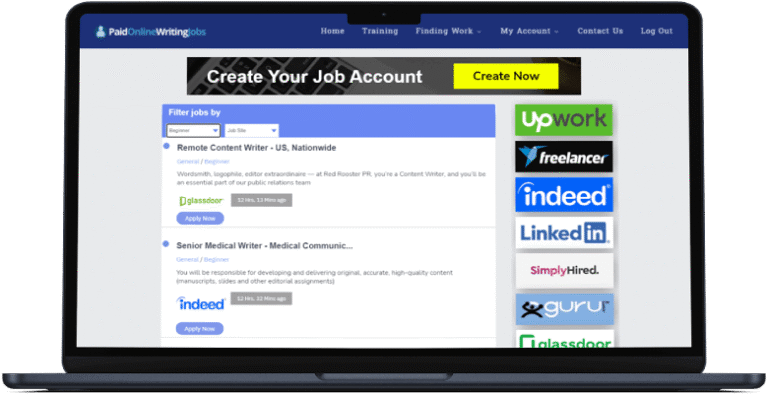How Artificial Intelligence is Transforming E-business: A Revolutionary Shift in Digital Commerce
How Artificial Intelligence is Transforming E-business: A Revolutionary Shift in Digital Commerce 2025
The global e-commerce market is expected to hit $6.3 trillion by 2023. This growth is largely due to the pandemic, which saw a 43% increase in 2020. Artificial intelligence is at the heart of this change, reshaping digital marketing, online shopping, and e-commerce strategies.
As you plan your e-commerce strategy, it’s key to see how AI boosts customer satisfaction, streamlines operations, and increases sales.
Key Takeaways
- The global e-commerce industry is projected to generate $6.3 trillion in 2023, driven by AI adoption.
- AI-driven systems can identify inconsistencies in spending behavior, making e-commerce safer from fraud.
- AI tools help set prices by analyzing market trends, competitor actions, and what customers want, boosting sales.
- Companies that don’t focus on digital first might lose out on sales and efficiency in e-commerce.
- AI will soon let businesses offer personalized experiences by analyzing vast amounts of data on consumers.
- AI analytics give insights into what customers like and do, helping in making better marketing and products.
- AI services that promise guaranteed revenue will shape the future of e-commerce and other fields, guiding strategies.
The Current State of AI in E-commerce Operations
Artificial intelligence (AI) is key in today’s e-commerce world. The AI market for e-commerce is set to hit $45.72 billion by 2032. This growth is fueled by the demand for personalized shopping, efficient stock management, and smart digital advertising.
Big names like PayPal and Stripe use AI to spot fraud. They analyze transaction patterns to catch unusual activities. Amazon’s recommendation engine also uses AI to suggest products based on what you’ve bought and looked at. This shows AI’s impact on e-commerce trends.
AI brings many benefits to e-commerce, such as:
- Personalized product suggestions that boost sales by matching products with shopper preferences
- AI chatbots that offer 24/7 customer support and handle many questions at once
- Dynamic pricing algorithms that adjust prices in real-time based on market trends and customer behavior
When thinking about adding AI to your e-commerce business, remember it needs a big investment and follows strict data rules. Yet, the advantages of AI, like better customer service and more sales, make it a smart choice for e-commerce solutions.
Understanding AI-Powered E-commerce Strategies
Exploring e-commerce optimization, AI strategies are key. They help create personalized shopping experiences. This boosts customer happiness and loyalty by understanding their likes and behaviors.
In digital marketing, AI is vital for managing stock and prices. For example, predictive analytics predict demand. This ensures you always have the most wanted items. Dynamic pricing optimization adjusts prices based on what’s available and what people want, helping you make more money.
AI in e-commerce offers many benefits:
- It makes shopping more personal and enjoyable.
- It helps manage stock and predict what customers will want.
- It sets the best prices to make more sales.
Studies show AI can really help your sales. It’s also important to keep an eye on what customers want with real-time analytics. Using AI in your e-commerce can help you grow and stay ahead in the online shopping world.
Real-World Success Stories: Leading E-business AI Implementations
E-commerce brands are using artificial intelligence to get better insights, offer personalized experiences, and stay ahead. Companies like The Farmer’s Dog, Care/of, and Dollar Shave Club have grown a lot thanks to AI implementation and digital marketing case studies.
These e-commerce success stories show how AI implementation can help. They’ve seen better customer experiences, more efficiency, and a stronger competitive edge. For example, Dollar Shave Club‘s viral video got 4.75 million views in just 3 months. Warby Parker‘s top 15 glasses sold out in 4 weeks.
Happy Box grew 10x in 2021, and Alo Yoga made $247.1 million in a year. These stories show how AI implementation and digital marketing case studies can boost business growth and competitiveness.
Looking at these e-commerce success stories and digital marketing case studies can teach businesses a lot. They show how AI implementation can help grow and stay competitive in e-commerce.
Critical Components of AI Integration in Online Shopping
Exploring e-commerce today, you’ll see AI integration is essential, not just a luxury. Technologies like machine learning, natural language processing, and computer vision change the game. They help online stores offer better shopping experiences, giving you an edge and making customers happier.
AI’s big plus is in personalizing product suggestions. Machine learning algorithms study what customers like and suggest items they might buy. Also, natural language processing lets chatbots answer questions 24/7, easing the load on human support teams.
Key Benefits of AI Integration
- Increased conversion rates through personalized product recommendations
- Improved customer service with AI-powered chatbots
- Enhanced customer experience through computer vision and visual search
Adding AI to your e-commerce plan boosts sales, customer happiness, and efficiency. The AI in e-commerce market is set to soar from $2.8 billion in 2022 to $18.3 billion by 2027. Clearly, AI is shaping the future of online shopping.
| Technology | Benefit |
|---|---|
| Machine Learning | Personalized product recommendations |
| Natural Language Processing | Improved customer service with chatbots |
| Computer Vision | Enhanced customer experience with visual search |
Measuring ROI: The Impact of AI on Digital Marketing
Investing in AI for your e-commerce business? It’s key to measure the return on investment (ROI). This helps you see how AI affects your digital marketing. By looking at e-commerce analytics, you can spot where AI boosts your marketing. This lets you make smart choices to improve your strategies.
AI brings many benefits to digital marketing. It helps with rapid digital transformation, consistent and timely service, and better allocation of resources. AI analytics give insights into what customers like and want. This helps you make marketing campaigns that really work.
For example, Amazon and Netflix use AI to change how they serve customers. This gives them an edge in fast-changing markets.
To see how AI boosts your marketing, track things like conversion rates and customer lifetime value. AI tools can automate tasks and make marketing more personal. This can lead to big wins, like a 113% jump in conversion rates and a 72% boost in average order value (AOV).
Understanding AI’s impact on digital marketing helps you make your e-commerce business better. Focus on testing AI models and tracking how well they do. Look at both short-term and long-term results.
| Metrics | Benefits |
|---|---|
| Conversion Rates | Measure the effectiveness of AI-powered marketing campaigns |
| Customer Lifetime Value | Understand the long-term impact of AI on customer relationships |
| Click-through Rates | Analyze the performance of AI-driven advertising campaigns |
Overcoming Implementation Challenges in E-commerce Solutions
When you add AI to your e-commerce, you’ll face some hurdles. One big one is needing lots of good data to train AI. The quality of this data is key because it affects how well AI can predict and suggest things.
Another important thing is the tech you need for AI in e-commerce. This includes strong servers, fast data storage, and special software for handling data. Data privacy is also a big deal, as you must keep customer info safe from hackers.
Key Implementation Challenges
- Technical infrastructure requirements, such as robust servers and high-speed data storage
- Data privacy and security concerns, including protection of sensitive customer information
- Staff training and adaptation to new AI-powered systems and processes
To beat these challenges, you need a solid plan. This plan should cover tech needs, keeping data safe, and training your team. With a good plan, you can smoothly move to AI in e-commerce and get the most out of it.
By tackling these challenges, you can make the most of AI in e-commerce. This will help you stay on top in the fast-changing digital world.
| Challenge | Solution |
|---|---|
| Technical infrastructure requirements | Invest in robust servers and high-speed data storage |
| Data privacy and security concerns | Implement robust security measures to protect sensitive customer information |
| Staff training and adaptation | Provide thorough training and support for staff to adapt to new AI-powered systems |
Future Trends in AI-Driven E-business Evolution
The e-commerce world is changing fast, and future trends in AI-driven e-business are key. The market is set to hit $45.72 billion by 2032. This shows that AI-driven e-business is here to stay. A big focus is on using AI to make shopping more personal.
Some important stats show AI’s role in e-commerce:
- 84% of e-commerce businesses see AI as a top priority
- AI boosts customer satisfaction, revenue, or cost by more than 25%
- Businesses that offer personalized shopping see a 40% revenue boost
We’ll see more AI in e-commerce soon. Expect virtual try-ons, AI-powered AR and VR, and better security with machine learning. These will make shopping smoother and more personal, pushing e-commerce evolution forward.
E-commerce success depends on being customer-focused. By investing in AI-driven e-business and e-commerce evolution, retailers can stay ahead. The right AI strategy can boost growth and revenue.
| Statistic | Value |
|---|---|
| E-commerce AI market size by 2032 | $45.72 billion |
| Percentage of e-commerce businesses prioritizing AI | 84% |
| Improvement in customer satisfaction, revenue, or cost reduction with AI | 25%+ |
Conclusion: Embracing AI for E-commerce Success
The e-commerce world is always changing. Using artificial intelligence (AI) is key for businesses to stay ahead and give great customer service. By adding AI to your e-commerce plans, you open up many chances to succeed.
AI can help you suggest products that customers might like, boosting sales by up to 30%. It can also handle 80% of customer questions with chatbots. Plus, AI can make your digital marketing better, increasing your return on investment by 25%.
The global e-commerce market is expected to hit $7 trillion by 2025, thanks to AI. It’s a great time to start using AI in your business. With AI, you can make shopping online smooth and personal, keeping your customers happy and growing your business.







